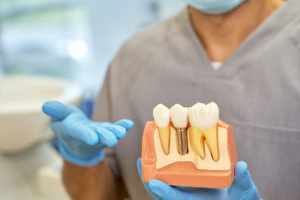Hormonal changes don’t just affect your mood or body—they also have a direct impact on oral health during pregnancy, menopause, and puberty. Shifts in estrogen and progesterone levels during these stages can make gums more sensitive, increase the risk of oral disease, and even contribute to dry mouth or bone loss. Understanding how these changes influence your smile can help you take the proper steps to protect your oral health at every stage of life.
Puberty
During puberty, an increase in hormones can cause the gums to become swollen, red, and more prone to bleeding when brushing or flossing. This condition, often called “puberty gingivitis,” occurs because higher hormone levels amplify the body’s reaction to plaque. For teenagers, maintaining excellent dental hygiene is essential to control plaque buildup and keep gums healthy.
Pregnancy
Pregnancy is another time when hormone levels surge, often making women more susceptible to gum inflammation, pregnancy gingivitis, and even small growths on the gums known as pregnancy tumours (which are not cancerous but caused by irritation). Expecting mothers may also experience dry mouth, which increases the risk of cavities. Regular cleanings and dental checkups during pregnancy are not only safe but also strongly recommended to prevent complications that could affect both the mother and the baby.
Menopause
As estrogen levels decrease during menopause, women often experience several oral health challenges, including dry mouth, burning mouth syndrome, and an increased risk of bone loss in the jaw. Lower saliva flow can make it easier for bacteria to thrive, raising the risk of cavities and gum disease. In more severe cases, gum treatments such as gum surgery may be necessary to restore oral health. Additionally, the stress and sleep disturbances that sometimes accompany menopause can lead to teeth grinding, which may be managed with a mouth guard.
Advanced dental technology, such as digital X-rays and 3D imaging, can help detect early signs of gum disease, bone loss, or other hormone-related oral changes, allowing for more precise and effective treatment planning.
Protecting Your Oral Health Through Every Stage
Regardless of your age or stage of life, paying attention to your oral health during hormonal changes is crucial. Shifts during puberty, pregnancy, or menopause can make your teeth and gums more vulnerable, but with the proper care, you can maintain a strong and healthy smile.
- Brush and floss daily to control plaque buildup and lower the risk of gum disease.
- Schedule regular dental checkups and professional cleanings so your dentist can detect changes early and provide preventive care.
- Stay hydrated to counteract dry mouth, a common side effect of hormonal fluctuations that can increase the risk of cavities.
- Use fluoride toothpaste to strengthen enamel and protect your teeth from erosion and decay.
- Ask your dentist about tailored solutions, such as a night guard to prevent grinding, treatment for gum inflammation, or restorative care if teeth become worn or sensitive.
Support for Lifelong Oral Health
Your smile reflects the changes your body goes through, and hormones play a significant role in that journey. At The Pines Dental Office, we provide compassionate, personalized care to address oral health concerns at every stage of life. From preventive to restorative treatments, our team ensures that your smile remains strong and healthy, no matter what life brings your way.
Ready to take control of your oral health? Contact us today to book your appointment and get the care you need for a confident, healthy smile.



